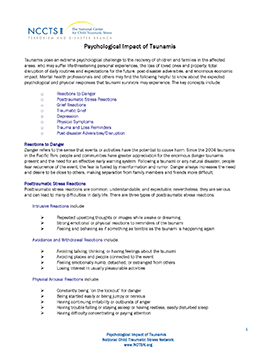
Psychological Impact of Tsunamis
Provides parents and providers with information about the psychological impact of tsunamis.
The following resources on child trauma were developed by the NCTSN. To find a specific topic or resource, enter keywords in the search box, or filter by resource type, trauma type, language, or audience.

Provides parents and providers with information about the psychological impact of tsunamis.
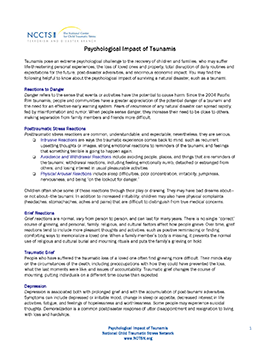
Provides parents and providers with information about the psychological impact of tsunamis. This fact sheet describes common reactions to disasters, posttraumatic stress reactions, grief reactions, trauma and loss reminders, traumatic grief, and coping after a disaster.

Allows families to list important telephone numbers and other information that could be useful in the case of an emergency.
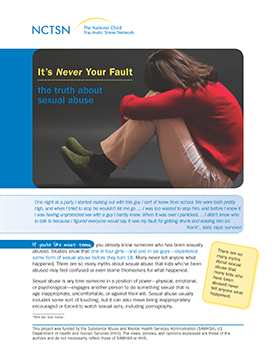
Provides information to teens about sexual abuse. This fact sheet describes what sexual abuse is, how common it is, myths and facts about sexual abuse, and where to go for help.
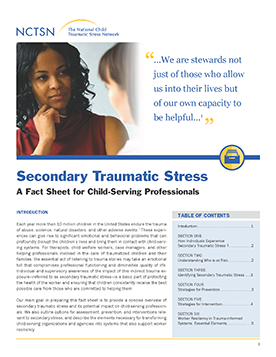
Offers child-serving professionals information about secondary traumatic stress (STS).
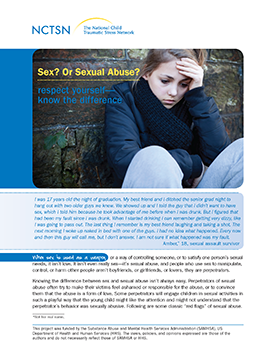
Offers teens information about the differences between sex and sexual abuse. This fact sheet describes when sex is used as a weapon, including the use of physical force, emotional or psychological force, secrecy about sex, and victim blaming.
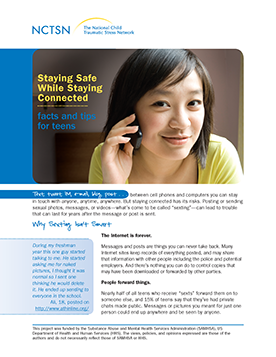
Provides information to teens about staying safe while they are online.
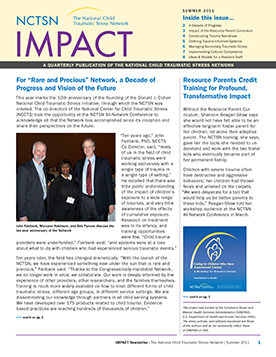
Showcases the progress the NCTSN has made in the field of child trauma in the last ten years, the impact the Caring for Children Who Have Experienced Trauma: A Workshop for Resource Parents curriculum has had on parents, as well as other stories.
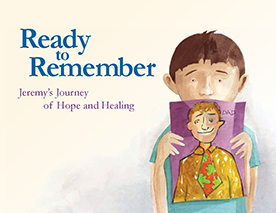
Tells the story of a 10-year-old boy's experience following the tragic death of his father. Jeremy is having a traumatic reaction and struggling at school and at home.
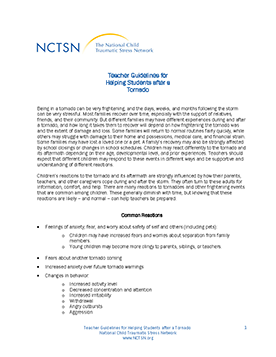
Offers teachers guidance on helping students after a tornado. This fact sheet describes common reactions students may have, how teachers and school staff can help, as well as engage in self-care after a tornado.
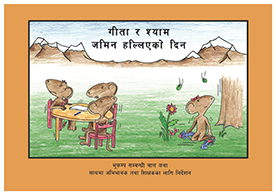
Offers parents and caregivers a way to talk with their children about earthquakes. This children’s book describes some of Trinka's and Sam’s reactions to an earthquake, talks about how their parents help them express their feelings and feel safer.
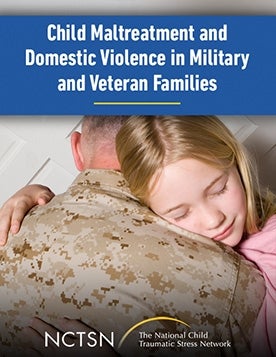
Focuses on programs for military families and children. This webinar series presents information that aims to prevent and intervene in cases of child abuse/neglect and domestic violence.